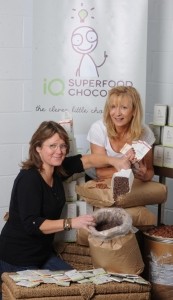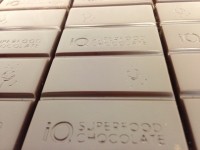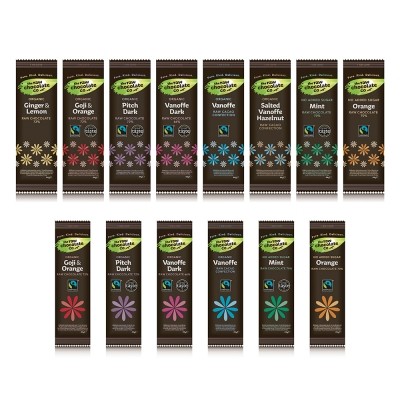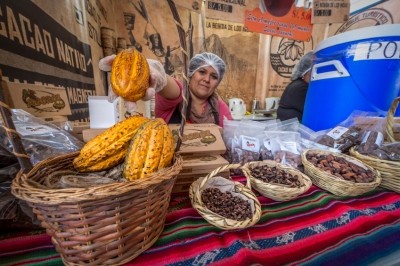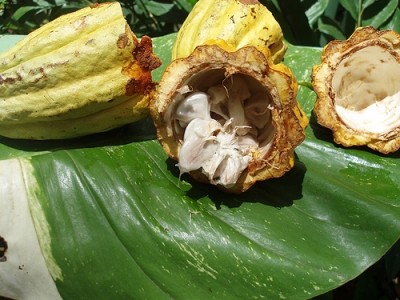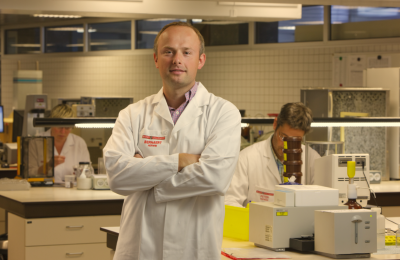IQ Chocolate preps sports performance cocoa health claim
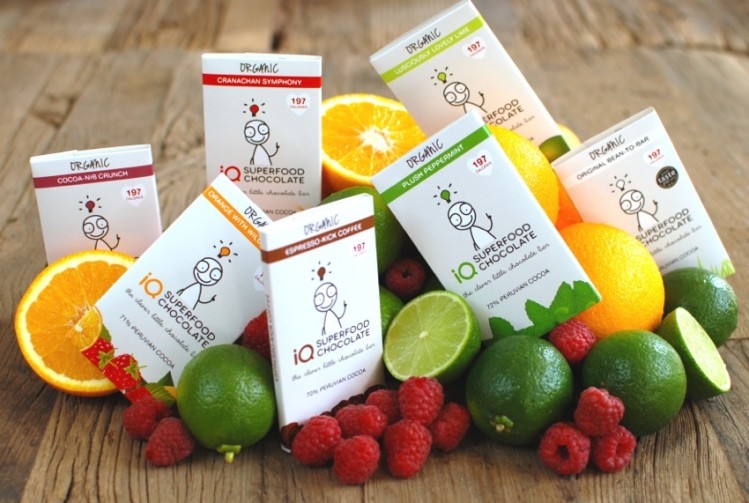
Founded two years ago by Scots Kate Hamilton and Jane Shandley, both now in their 60s, IQ Chocolate markets its bars as “healthy chocolate".
The organic cocoa beans are stoneground at low temperatures, which keeps them “raw”. Its creators claim that this means the chocolate retains high levels of nutrients and antioxidants, which they say can be lost in traditional methods of chocolate making.
Flavanol fears
Last month the European Commission approved a cocoa flavanol health claim put forward by Barry Callebaut. Callebaut has five year propriety rights to the health claim which says that 200 mg of cocoa flavanols either from cocoa beverages or dark chocolate contribute to normal blood flow.
“Flavanols are a really tricky issue at the moment because of Callebaut’s protected claim,” co-director Kate Hamilton told ConfectioneryNews. “So until we have an authorized protected claim with EFSA,
everybody is kind of backing of from saying anything about flavanols," she said, for fear of legal action.
The business partners refrained from specifying how many flavanols are in each IQ bar, saying that this was dangerous ground at the moment. Hamilton said that they were hurriedly trying to get human studies tied down for the company's own health claims in order to put a dossier together for European Food Safety Authority (EFSA) review.
The company is currently in talks with Queen Margaret University and a Scottish rugby team to discuss the possible health claim routes, and says that this is a top priority for the firm. “Obviously it’s a priority for us because these are our USPs and the fact that they’ve now moved the goal posts means we’re in a big hurry to catch up with that,” Hamilton said. The areas of research which have been touted with the university researchers are recovery and endurance within sports, the company told us.
The European Commission has only ever authorized one application for endurance benefits, which is for a carbohydrate-electrolyte solution. All claims for recovery have thus far been rejected.
Raw process
Despite not having a complete dossier to submit to EFSA, elsewhere a recent study suggested that higher temperatures in the roasting cocoa process leads to flavanol losses. The study suggested that temperatures should be kept below 140°C in order to preserve most of the initial flavanol concentration and to obtain almost unaffected flavanol composition.
IQ say its cocoa beans are not roasted but fermented for 72 hours at low temperatures before being air dried naturally.
Hamilton said that the company tries to keep its process as natural and simple as possible and therefore does not use emulsifiers often used to make the chocolate mixture pass through machinery more easily and to ensure a smooth, shiny end product. “So sometimes [the IQ Chocolate] may not be as pretty, it may be slightly rough around the edges… For us the quality of the food is more important than how it looks,” she said.
High quality, not just high end, positioning
The bars are available in smaller farm shops and delicatessens through to Harvey Nichols, Fortnum & Masons and Planet Organic stores in London. But the company said it was eager not to limit itself to any one sales channel.
“What we were very keen to do right from the start is neither to be attempting to be in the candy bar space, because clearly we don’t belong there, nor in the luxury gift chocolate space,” co-director Jane Shandley told ConfectioneryNews.
At a recent industry exhibition space, the company deliberately decided to locate themselves in the food space as opposed to that dedicated to chocolate companies. “We actually want to position our chocolate as a very natural, delicious, healthy food, rather than the way chocolate can be perceived as either a kind of luxury item or some kind of candy bar,” Shandley said.
The product is been marketed as containing “superfood” ingredients like coconut blossom nectar which is high in potassium, magnesium, zinc and iron and a source of the vitamins B1, B2, B3, B6 and C.
The bars are available in seven different varieties including original bean-to-bar, espresso-kick coffee, and orange and wild raspberry, all of which contain 70% or more Peruvian cocoa and no refined sugar. Recommended retail price of each 35g bar is £2.99 ($4.84) and each contains less than 199 calories.
